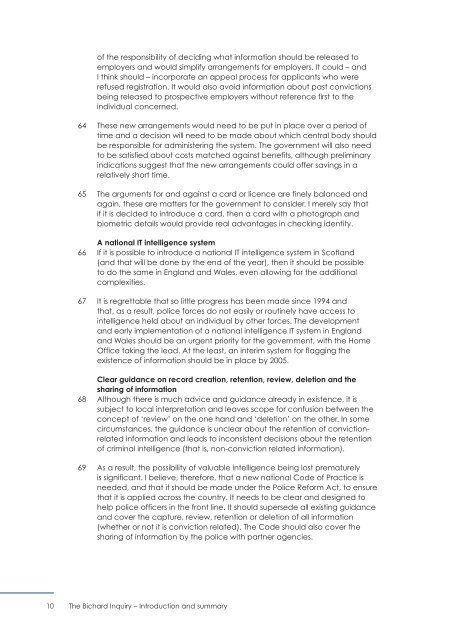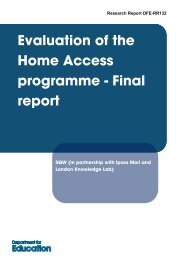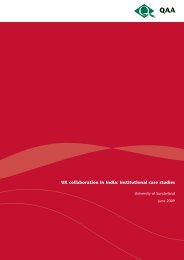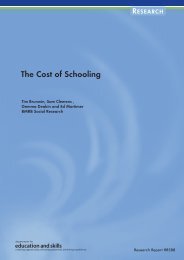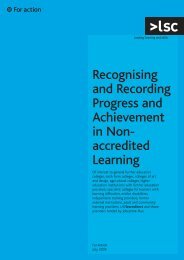The Bichard Inquiry - Report - Digital Education Resource Archive ...
The Bichard Inquiry - Report - Digital Education Resource Archive ...
The Bichard Inquiry - Report - Digital Education Resource Archive ...
Create successful ePaper yourself
Turn your PDF publications into a flip-book with our unique Google optimized e-Paper software.
of the responsibility of deciding what information should be released to<br />
employers and would simplify arrangements for employers. It could – and<br />
I think should – incorporate an appeal process for applicants who were<br />
refused registration. It would also avoid information about past convictions<br />
being released to prospective employers without reference first to the<br />
individual concerned.<br />
64 <strong>The</strong>se new arrangements would need to be put in place over a period of<br />
time and a decision will need to be made about which central body should<br />
be responsible for administering the system. <strong>The</strong> government will also need<br />
to be satisfied about costs matched against benefits, although preliminary<br />
indications suggest that the new arrangements could offer savings in a<br />
relatively short time.<br />
65 <strong>The</strong> arguments for and against a card or licence are finely balanced and<br />
again, these are matters for the government to consider. I merely say that<br />
if it is decided to introduce a card, then a card with a photograph and<br />
biometric details would provide real advantages in checking identity.<br />
A national IT intelligence system<br />
66 If it is possible to introduce a national IT intelligence system in Scotland<br />
(and that will be done by the end of the year), then it should be possible<br />
to do the same in England and Wales, even allowing for the additional<br />
complexities.<br />
67 It is regrettable that so little progress has been made since 1994 and<br />
that, as a result, police forces do not easily or routinely have access to<br />
intelligence held about an individual by other forces. <strong>The</strong> development<br />
and early implementation of a national intelligence IT system in England<br />
and Wales should be an urgent priority for the government, with the Home<br />
Office taking the lead. At the least, an interim system for flagging the<br />
existence of information should be in place by 2005.<br />
Clear guidance on record creation, retention, review, deletion and the<br />
sharing of information<br />
68 Although there is much advice and guidance already in existence, it is<br />
subject to local interpretation and leaves scope for confusion between the<br />
concept of ‘review’ on the one hand and ‘deletion’ on the other. In some<br />
circumstances, the guidance is unclear about the retention of convictionrelated<br />
information and leads to inconsistent decisions about the retention<br />
of criminal intelligence (that is, non-conviction related information).<br />
69 As a result, the possibility of valuable intelligence being lost prematurely<br />
is significant. I believe, therefore, that a new national Code of Practice is<br />
needed, and that it should be made under the Police Reform Act, to ensure<br />
that it is applied across the country. It needs to be clear and designed to<br />
help police officers in the front line. It should supersede all existing guidance<br />
and cover the capture, review, retention or deletion of all information<br />
(whether or not it is conviction related). <strong>The</strong> Code should also cover the<br />
sharing of information by the police with partner agencies.<br />
10 <strong>The</strong> <strong>Bichard</strong> <strong>Inquiry</strong> – Introduction and summary


